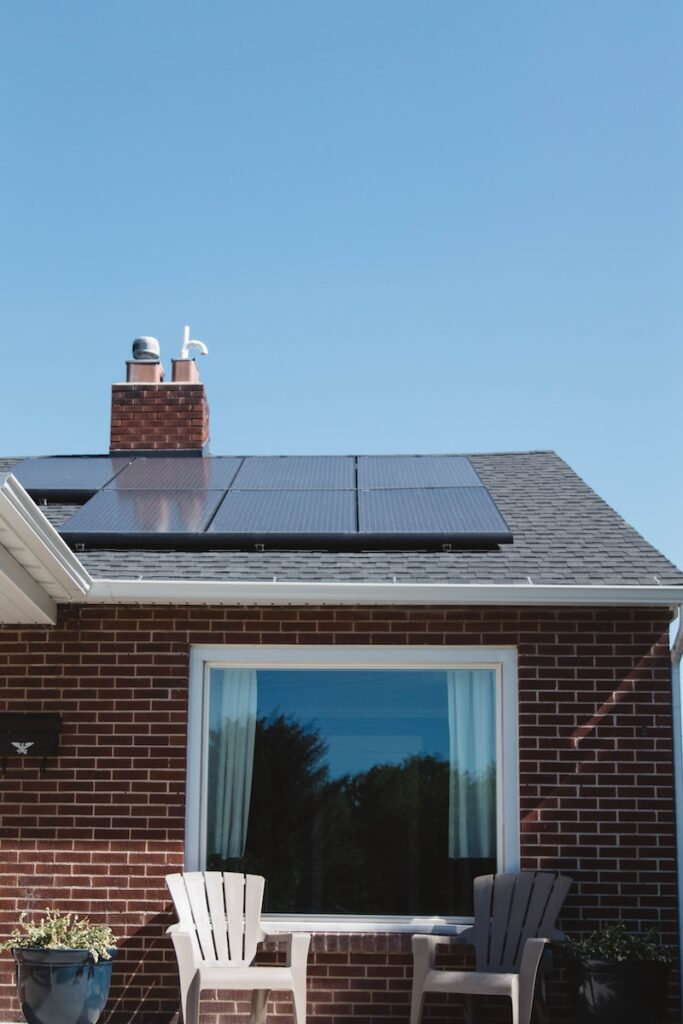
If you are a homeowner, you may be interested in installing solar power systems for various reasons, such as reducing electricity bills, minimizing carbon footprints, or increasing home values.
However, it’s essential to note that these systems come with significant installation and maintenance costs. In addition, the advantages can vary widely based on the specifics of your home.
Given these factors, you may ponder the feasibility of placing solar panels on your rooftop or seeking alternative methods to tap into solar energy.
This article aims to guide you through the financial considerations of solar power, helping you assess its viability for your residence.
Home Solar Panel Overview
Solar panels operate in various climates, but not all rooftops are suitable due to age or tree shade. If trees cast significant shade on your roof, rooftop panels might not be optimal.
The roof’s size, shape, and slope matter, with south-facing roofs sloped between 15 and 40 degrees, is ideal, though other configurations can work. Consider your roof’s age and its remaining lifespan.
If a solar specialist deems your roof unfit or you don’t own your home, community solar is an option. This approach involves a shared solar array, either on- or off-site. Costs are split among participants, allowing them to invest based on their budget.
On the surface, deciding on solar power’s financial sense seems straightforward. You’d evaluate the system’s cost, its energy output, the equivalent energy cost without solar, the payback period, and if the system can recoup its cost in five years.
If it can, and you have the necessary funds, it’s a worthy investment. But if the savings take longer or you’d need a loan, it warrants careful consideration.
With Calgary boasting an average of 2,300 sunshine hours annually, it’s a prime spot for solar energy.
Notably, most solar systems recoup their costs in 5-7 years, based on your usage, making it a savvy choice for many Calgary residents. Plus, various incentives and rebates for solar installations can make it even more affordable.
How Much Will You Save from Home Solar Panels in Calgary?
Your solar savings hinge on factors like electricity consumption, system size, panel type, and roof direction. Additionally, utility company rates and compensation for excess energy you feed back into the grid play roles.
Installing solar has varying costs, influenced by system size and panel type. Typically, a home solar system’s upfront cost ranges from $3,500 to $16,000. The bulk of this expense is the solar module.
Beyond panels, you’ll need equipment like inverters to convert the panel’s direct current to household-friendly alternating current, metering tools, housing components, cables, and wiring.
While batteries can store excess energy, they’ve historically been costly and less needed if utilities buy back surplus power. Remember the labor costs for installation.
Operational and maintenance costs follow installation. Regular cleaning is essential, and components like inverters and batteries might need replacement over time.
Government and utility subsidies can be tricky to navigate. Canada’s Greener Homes Grant offers up to $5,000 for energy-efficient upgrades, including solar panels. This grant also covers up to $600 for pre and post-installation evaluations, but both are mandatory.
To get the pre-installation evaluation refund, you must complete at least one suggested retrofit. Successful retrofits can get up to $5,000 back. Additionally, Calgary solar panels can earn a $1,000 per kWh reimbursement.
Conclusion
Investing in solar panels for home – Calgary solar panels is a wise choice, given the region’s ample sunshine. While starting costs might be high, the long-term savings and environmental advantages are significant.
Most Calgary solar panels recoup their costs within 5-7 years. It’s essential to weigh factors like roof compatibility, expected savings, and available grants.
With incentives like the Canada Greener Homes Grant, solar energy becomes an even more appealing option.
Adopting solar not only cuts down electricity costs but also supports the broader move towards renewable energy.
FAQs
What is the lifespan of a typical solar panel system?
Most solar panels are designed to last between 25 to 30 years. However, this doesn’t mean they stop producing electricity after this period; it just means their energy production has decreased by what manufacturers consider significant.
How do solar panels perform in adverse weather conditions?
Solar panels are built to withstand various weather conditions, from rain to hail to snow. While their efficiency might decrease during cloudy or rainy days, they can still produce electricity. In snowy regions, panels can benefit from the reflection of sunlight off the snow.
Can I go completely off-grid with solar panels?
Technically, yes. However, going entirely off-grid requires a comprehensive solar setup with a robust battery storage system. It’s essential to ensure you can generate and store enough power for periods with less sunlight.













